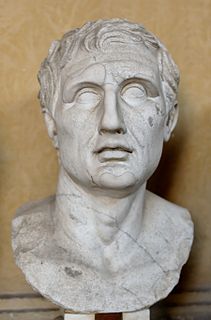A Quote by Plautus
He whom the gods love dies young, whilst he is full of health, perception, and judgment.
[Lat., Quem dii diligunt,
Adolescens moritur, dum valet, sentit, sapit.]
Related Quotes
The short bloom of our brief and narrow life flies fast away. While we are calling for flowers and wine and women, old age is upon us.
[Lat., Festinat enim decurrere velox
Flosculus angustae miseraeque brevissima vitae
Portico; dum bibimus dum sera unguenta puellas
Poscimus obrepit non intellecta senectus.]


































